Exploring The Beauty Of Urdu Writing: #1 Easy Guide
- , March 15, 2024
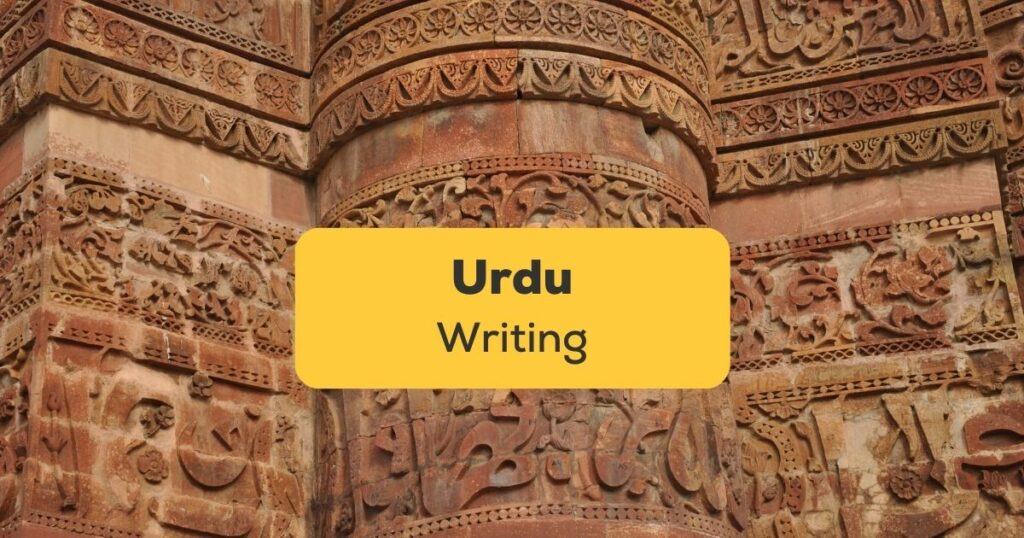
Growing up in New Delhi, I had always been fascinated by the remnants of Mughal architecture dotting the city skyline. But it was the Urdu writing – Urdu tehreer (اردو تحریر) carved on those centuries-old walls and minarets that would catch my attention every time.
Now, it might not be a ‘romance’ language like French, Italian, or Spanish, but many in north India and Pakistan consider Urdu a language of romance. Rekhta (ریختہ), one of its earlier names, is a language of culture – of Adab (ادَب – respectfulness) and Tahzeeb (تَہْذِیب – mannerism). It is the language of mystical Sufism, divine love, and poetry. It is the language of Sukhan (سخن) – speech, language, and Urdu words .
Let’s discover what makes Urdu a beautiful language to learn .

What Are The Features Of Urdu Writing
#1 the urdu script.
As we noted earlier, it uses the Nastaʻliq script and is typically written from right to left. After the Mughal conquest, Nastaʻliq became the preferred writing style for Urdu. The appearance of letters in cursive depends on their context and positions: Isolated form, initial position (starting from left), medial form (both sides), and final position (joined on the right).
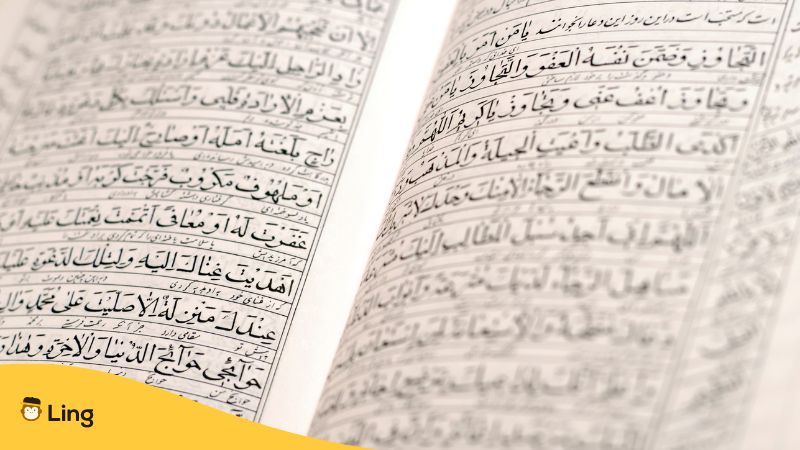
#2 The Urdu Alphabet
There are 39 or 40 Urdu letters without any distinct letter case. Now, the ambiguity regarding the number of Urdu alphabet present in this script is quite clear. That’s because it is an ‘abjad’ script that evolved from the Persian script.
This implies that the Urdu script only identifies consonants and long vowels. The pronunciation of short vowels is left to the reader’s inference. The first letter of the script is ا (pronounced: Alif ), and the second letter is ب (pronounced: Bē ).
#3 Sound System
There are 41 consonant sounds and 11 vowel sounds in this language. It is interesting to note that it has borrowed numerous phonemes (smallest unit of speech) from Perso-Arabic and Indo-Aryan languages. It has adopted 14 Indic sounds with aspirated consonants, retroflex consonants, and additional letters in the form of aspirated and unaspirated sounds.
#4 Word Order
The Urdu sentence structure follows the SOV pattern: Subject + Object + Verb. For instance, one can write the translation of “I am eating food” as میں کھانا کھا رہا ہوں ( Main khaana kha rahaa hoon ). Further, the verbs and adjectives agree with the subject (gender and plurality of nouns).
So, a male would say: میں کھانا کھا رہا ہوں ( Main khaana kha rahaa hoon ) whereas a female would say میں کھانا کھا رہی ہوں ( Main khaana kha rahi hoon ).
#5 Vocabulary
There’s no denying that this Asian language is unique when it comes to the terminologies it uses. In the case of the Urdu language, most of the terms are known to be greatly influenced by Persian, Turkish, and Arabic words that are not commonly found in other languages (as shown in the tables below). So, the next time you’re trying to connect with someone in Urdu, you might want to brush up on these useful words and phrases beforehand.
Fascinating Features Of The Urdu Language
Urdu is the native language of many Indians and Pakistanis, with a vast diaspora settled in the UK, the USA, Canada, Australia, and several Gulf countries. Though born in Delhi of yore, this language enjoys the status of being the official language of the Islamic Republic of Pakistan and one of the 22 official languages of the Republic of India. It is also the official state language of several Indian states.

Its Origins
This language was born from the regional Apabhramsha (the literary language of northwestern India’s final phase of the Middle Indo-Aryan languages) in the 12th century. This new language came into existence in the region of present-day Delhi as an amalgamation of the Hindu and Muslim cultures. Urdu was derived from the Turkish word ‘ordu,’ meaning army.
Throughout the centuries, it came to be known by various names – Hindvi, Gujari, Dakkhani, Zaban-e-Hind, Hindi, Zaban-e-Delhi, and so on . In the late 17th and 18th centuries, it was called Hindustani and Zaban-e-Urdu (the language of the army), respectively.
Its Similarities With Hindi
Hindi and Urdu are considered sister languages . One can argue that on many parameters, they are almost identical. For instance, they sound intelligent to each other’s native speakers. At the conversational level, the spoken version of both these languages sounds the same as they both evolved from the same source – Khari Boli – the dialect of the Delhi region during the Delhi Sultanate’s reign.
The primary difference lies in their written forms. While Hindi is written in the Devanagari script from left to right, Urdu uses a modified form of Perso-Arabic script known as Nastaliq (nastaʿlīq – نستعلیق ) and is written from right to left.
Moreover, the majority of the Hindi lexicon is borrowed from Sanskrit and Prakrit, while Persian, Arabic, and Turkish heavily influence the latter.

Want To Learn Urdu? Try Ling
Now, wasn’t that a solid start to making a foray into writing the Urdu language ? Yes, it might seem quite challenging at the beginning, but which learning curve doesn’t? The most important thing is to make a commitment to your resolve and stay determined to it. For everything else, you can always depend on Ling .
The Ling app offers unique linguistic techniques and modern technology to provide you with a fulfilling language learning experience. With its gamified interface, interactive exercises, and fun quizzes, you are bound to make quick progress in your language-learning journey. Picking up a language has never been this easy! So, without wasting much time, go to your Google Play Store or Apple App Store and download the Ling app for free now!
Leave a Reply Cancel reply
Your email address will not be published. Required fields are marked *
Save my name, email, and website in this browser for the next time I comment.
Discover more

People also read

35+ Easy German Illness And Disease Words

30+ Easy Words For German Herbs And Spices

Making German Words Plural: 5 Easy Rules!

Give And Ask For Directions In German: #1 Easy Guide

#1 Best Guide On Father’s Day In German

5+ Best Ways To Say Okay In German Like A Pro
Southeast asia, east europe.
© 2024 Simya Solutions Ltd.

Essay Writing Tips in the Urdu Language
- Post author: Mr-Teacher
- Post last modified: February 21, 2023
Sharing is Caring Share this content
- Opens in a new window
Are you learning Urdu and need to write your first essay in the Urdu language? It won’t be as easy as ABC because you must do much research to complete a high-quality paper. Urdu refers to rare languages and has distinctive features and peculiarities. More and more students decide to contact professional academic writers at essay writing services not to fail and submit a flawless essay in Urdu. Want to write an insightful essay that will be evaluated positively? You’ve come to the right place. Here is a collection of expert writing tips from SmartWritingService that will make the essay writing process easier and more effective.
Choose the Topic You Know the Best
First, choose the topic you can reveal in the Urdu language. If you are a beginner, you shouldn’t pick complex topics. It will be hard to discuss them, and you won’t be able to give information on all the topic issues. Don’t choose too broad or too narrow topics. Brainstorm ideas on the topics you are interested in and feel passionate about discussing. Ensure you know all the necessary Urdu words and terms to discuss the chosen subject.
Conduct Research and Analysis
The second thing you need to do is to search for credible sources of information. You need to use only educational websites and electronic libraries with trusted sources. Don’t use any facts or data until you make sure all the information is true. You can use books, articles from newspapers, and web sources. The more sources you use, the better. Collect all the information on the topic you can find and analyze what pieces of information are valuable for your essay.
Write a Detailed Essay Outline
Now you have a topic and enough material to get started. Make an essay outline to have a clear picture of how to structure your essay paper. Using a good outline you won’t miss any important ideas on the subject.
Divide Your Content into 3 Parts
Your essay should consist of 3 parts: an introduction, the main body, and the conclusion. You should start with an engaging opening paragraph. The main key to success is to include interesting facts or a story about your topic. You should structure your essay, so the content is easy to perceive and understand. There is a wealth of literature in Urdu. This is the literature of Indian Muslims that dates back to the 13th century. Until the beginning of the 19th century, it was represented mainly by lyric poetry on religious-philosophical themes and was strongly influenced by Persian poetry. It’s a good idea to include poetry in your essay. Find several lines that reflect on your essay topic and use them at the beginning of your essay paper.
Write a short introduction to attract the reader’s attention and proceed to the main part of the essay. Here, you need to discuss all the key issues, give arguments for each of the discussion points, and start any new idea from the new paragraph. Finally, conclude your Urdu essay with several sentences that will make it clear to the reader why he/she has spent time learning the topic. Write about the possibility of further research on the topic. The conclusion should be brief, clear, and concise.
Pay a Special Attention to Grammar in Urdu
The grammar of Urdu is generally similar to that of Hindi; however, due to the cultural separation of Muslims from Hindus, Urdu has incorporated some elements characteristic of the grammar of Arabic and Persian.
- Nouns, pronouns, and verbs change in numbers (singular and plural) and cases (direct, indirect, vocative), verbs, some adjectives, and nouns also in gender (masculine and feminine). Some postpositions also vary in gender and number.
- Urdu pronouns are classified into several groups of meanings. Urdu has no negative pronouns; instead, negative constructions with indefinite pronouns are used. By the nature of the changes and functions in the sentence, pronouns are divided into pronouns-nouns, pronouns-adjectives, and pronouns-numerals. There are several types of participles in Urdu. The participles combine verbal and nominal signs. Foreign language (Arabic, Persian) participles in Urdu are used as ordinary adjectives.
- There are several types of verb tenses in Urdu. In terms of the present, there are two kinds, in terms of the past – three, and in terms of the future, the kind can both be expressed (in three forms) and remain unexpressed. Most tenses are formed by creating a nominal predicate from a participle and an auxiliary verb. The imperative mood has several forms, which differ in the degree of politeness. Also, in Urdu, there are “intensive verbs” – combinations of the stem of a verb with one of the 12 service verbs. As a result of this combination, the main verb receives a refined shade of its meaning. Intensive verbs are usually not recorded in dictionaries, they are not separate verbs, and in each particular case, they are formed directly in speech.
Proofread and edit the essay, if necessary. Make sure it doesn’t contain grammar errors, and that the whole essay sounds logical. If you lack essay writing skills or knowledge of the Urdu language, don’t hesitate to ask custom writers to check your paper and make it error-free. Experienced writers will provide a high-quality essay sample on the necessary topic to get inspired and learn how to express your thoughts in Urdu.
You Might Also Like

5 Best English Learning Apps for Free in 2023

10 of the Best YouTube Channels for Learning English in 2022
Leave a reply cancel reply.
Save my name, email, and website in this browser for the next time I comment.

Tips for Writing an Urdu Essay in O Level
By Benjamin Oaks | February 16, 2022
A seemingly accelerating globalization trend and diversity in all social spheres suggest an appetitive for more multilingual professionals. The more languages one knows, the more chances to become a valuable, successful employee. If you are a student, there is no better time to learn a foreign language than now. If Urdu is your second or even third language, you may face challenges along the way, as mastering this language is not an easy task. While assignment writers can help you complete some tasks, most of the work associated with learning this language requires substantial intellectual effort and skills on your part. In this article, grade miners share some top tips for writing a simple, O-level Urdu essay.

What Is an Urdu O-Level Essay?
Cambridge O Level stands for ordinary language level. O Level is designed with international students in mind, as they often struggle with learning a new language. Therefore, it has less complex requirements and demands than the advanced level for proficient language learners. However, even O Level may turn out to be an insurmountable barrier for many Urdu language learners if they lack proper guidance and support. The problem is that this Indo-European language is moderately difficult. It may be harder to learn Urdu than master English or German.
Essay writing is one of the basic assignments designed to help Urdu learners to write and express their ideas. Creating an essay in O Level pursues several goals:
- Expanding vocabulary
- Improving grammar and punctuation
- Learning word order
- Expressing ideas and opinions
Essays are well-suited for different language levels, including Urdu O, because the writing assignments can be adjusted to fit students’ language skills. For example, an advanced Urdu essay may examine more complex topics (e.g., social implications of climate change) and be several pages long. In contrast, O level-students can write on simpler topics and complete short essays (1-2 pages are usually enough).
How Can I Write an Urdu O-Level Paper?
Learning a foreign language may be a nightmare, but many pro tips can make this process less daunting. To begin, you need to practice a lot. Although it may be tempting to use the best writing services , you need to complete as many essays as possible to prepare for the language exam. We recommend using the Cambridge O Level books that usually contain all the needed vocabulary and grammar rules. Therefore, look through the book before writing your essay and write down some useful words and phrases that fit the topic. In this way, you will have a broader set of language tools to write your paper. Moreover, Cambridge books also contain grammar rules and other information you will need while writing your O-Level essay.
Next, you need to be able to work with the literature. Using your own ideas is always welcomed, but you also need to know how to support your arguments with solid evidence and hard facts. Find reliable Urdu sources and quote them to make your essay more impressive.
Of course, the structure is everything when it comes to essay writing. No matter what language you use, your essay should have the following organization:
- Introduction with a thesis statement
- Body paragraphs
No matter how many witty ideas you discuss or how rich your language is, your Urdu essay does not make sense without this structure. If used effectively, essay structure can make essay writing more manageable because it shows where you should put your ideas.
Finally, revising and editing are of paramount importance. Essays written by students whose first language is not Urdu are often riddled with multiple errors. Therefore, don’t overestimate your language abilities and never skip editing. When you practice, you can use the best essay writer service for editing your papers to understand your weaknesses better.
Need inspiration and guidance? Check Urdu O-Level essays online. Samples may help you understand what level of language knowledge you are expected to possess and how your essay should look. Samples are also helpful in expanding your vocabulary (make sure you take notes, though).
If you are given a chance to choose a topic, never opt for the most impressive one. Choose topics you are familiar with because you need sufficient knowledge to complete a good paper. Moreover, don’t try to be clever but always rely on facts. Last but not least, make sure you know how much time each of the essay parts takes. If you practice much, you should know how to organize your time not to submit a half-finished paper.
Introducing Benjamin Oaks – the man of many talents, including academic writing. Graderminer to the backbone, Benjamin takes great pride in helping new generations of college graduates in the U.S. to get their diploma successfully and be able to pay off college loans faster. Also, Benjamin is a cool guy to talk to on non-work related topics, from sports to high cuisine.
Leave a Reply Cancel reply
Your email address will not be published. Required fields are marked *
Save my name, email, and website in this browser for the next time I comment.
Nice Post. Thanks to develop the Writing skills of other Languages.

Step By Step Guide to Writing an Essay on Film
Writing an essay about a film sounds like a fun assignment to do. As part of the assignment, you get to watch the movie and write an analytical essay about...

7 Steps to Write a Movie Title in an Essay
There are indeed many types of essays you have to deal with throughout your studies. And every time you sit to type my essay, you first start looking for...

5 Best Movies About College Life
It does not matter if you are looking to learn a bit more regarding life in college, searching for a reason to have a good laugh, or just looking to...
Join our Film Threat Newsletter
Urdu Essays on Different Topics اردو مضامین

زندگی میں کامیابی کے اصول Kamyabi Ke Usool in Urdu
- By Yousaf Khan
- April 18, 2019

سرکس (تماش گاہ) Essay on Circus Show in Urdu

انٹرنیٹ کی اہمیت، فائدے اور نقصانات Internet Essay in Urdu
- April 10, 2019
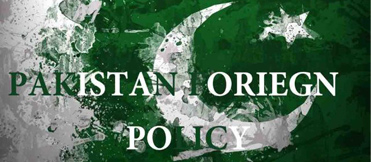
پاکستان کی خارجہ پالیسی Pakistan Ki Kharja Policy
- April 09, 2019
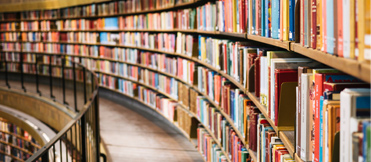
لائبریری کی ضرورت و اہمیت Library Ki Zaroorat Essay in Urdu
- April 08, 2019

ٹر یفک کے مسائل Traffic Problems Essay

خطہء کشمیر Kashmir Essay in Urdu
- April 06, 2019

ماحولیاتی آلودگی کے اثرات Effects of Environmental Pollution
- April 05, 2019

رمضان المبارک - برکتوں کا مہینہ Ramadan Mubarak in Urdu

تاج محل - مغل فن تعمیر کا اعلیٰ شاہکار Taj Mahal Essay in Urdu
- April 02, 2019

دہشت گردی ایک بین الاقوامی مسئلہ Dehshat Gardi Essay
- April 01, 2019

سمگلنگ کی وجوہات اور اثرات Effects and Causes of Smuggling

بے روزگاری ۔۔۔ایک سماجی بُرائی Unemployment in Pakistan Essay
- August 16, 2018

پاکستان کا نظام تعلیم اور درپیش مسائل Education System in Pakistan

کرپشن (بدعُنوانی) What is Corruption
- July 31, 2018

گلوبل وارمنگ کیا ہے ؟ What is Global Warming
- By Samina Rubab
- July 18, 2018
aaj ik aur baras biit gayā us ke baġhair
jis ke hote hue hote the zamāne mere
urdu essays
- READ NOW See Book Index
Editor : Syed Zaheeruddin Madni
Publisher : writers emporium, mumbai, origin : mumbai, india, year of publication : 1957, language : urdu, categories : essays & profiles, sub categories : essays, pages : 228, contributor : darul musannefin shibli academy, azamgarh.

More From Author
Read the author's other books here.
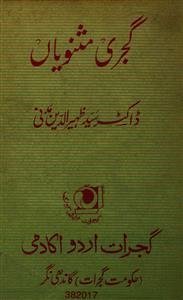
Gujari Mathnaviyan


Intekhab-e-Wali
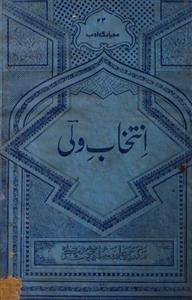
Intikhab-e-Wali
.
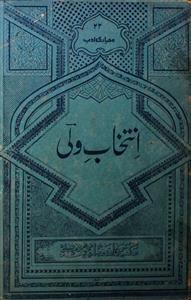
Maqalat-e-Professor Mohammad Ibrahim Daar
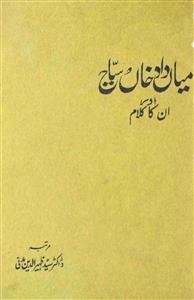
Miyan Daad Khan Sayyah Aur Unka Kalam
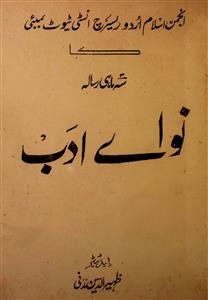
Navaye Adab Jild 2 Shumara 1
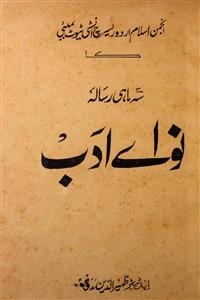
Nawa e Adab Jild 1 Shumara 3
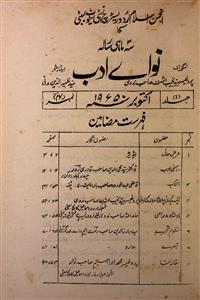
Nawa e Adab Jild 1 Shumara 4
Popular and trending read.
Find out most popular and trending Urdu books right here.

Aam Lisaniyat

Urdu Ki Nasri Dastanen

Pakistani Adab (Drama)

Pakistani Adab-1992

Dr. Nazeer Ahmad Ki Kahani Kuchh Meri Aur Kuchh Unki Zabani

Indr Sabha Amanat

Apne Dukh Mujhe De Do

Nai Duniya Ko Salam And Jamhoor
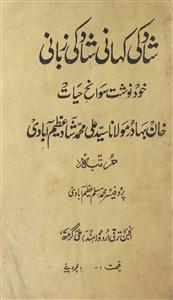
Shad Ki Kahani Shad Ki Zubani
Write a review.
Jashn-e-Rekhta | 8-9-10 December 2023 - Major Dhyan Chand National Stadium, Near India Gate - New Delhi
Rekhta Foundation
Devoted to the preservation & promotion of Urdu
Rekhta Dictionary
A Trilingual Treasure of Urdu Words
Online Treasure of Sufi and Sant Poetry
World of Hindi language and literature
The best way to learn Urdu online
Rekhta Books
Best of Urdu & Hindi Books
Dot & Line Blog

The Importance of Learning Urdu in Today’s World
- May 11, 2023
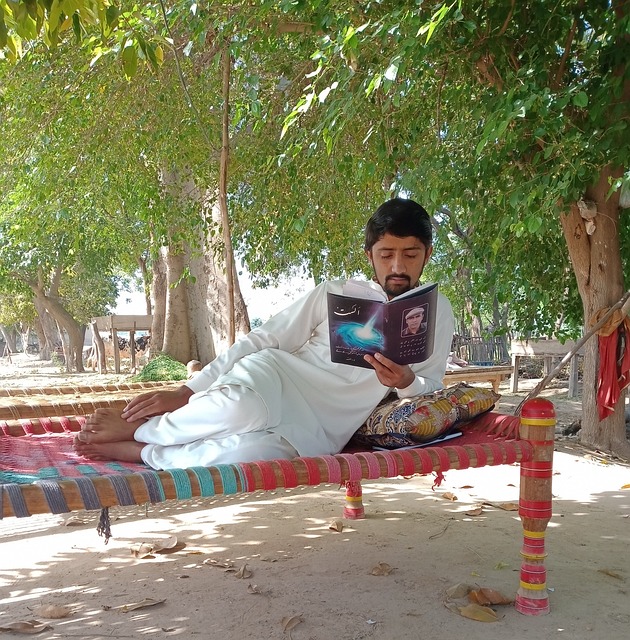
Table of Contents
Introduction:.
Urdu language, with its rich history and cultural significance, holds a special place in the hearts of millions worldwide. As a language that emerged from the fusion of Persian, Arabic, Turkish, and local dialects, Urdu carries the heritage of a diverse and multicultural past. It serves as a symbol of unity, bringing people together from different regions and backgrounds, and remains an essential component of our cultural heritage.
2. Brief history and significance of Urdu language:
Urdu traces its roots back to the 13th century when it evolved in the Indian subcontinent during the Delhi Sultanate. Its development was deeply influenced by the interaction between Persian-speaking rulers and local populations. Over time, Urdu flourished as the language of poetry, literature, and administration during the Mughal Empire.
2.1 Urdu as a symbol of cultural identity and heritage:
Urdu embodies the essence of South Asian culture, acting as a powerful unifier among people of diverse linguistic and ethnic backgrounds. It serves as a mother tongue to millions in Pakistan and is one of the 22 officially recognized languages in India. The language carries the legacy of our forefathers and connects us to our roots, reminding us of our shared heritage.
Consider the renowned Urdu poet Allama Iqbal, whose poetry remains a profound representation of South Asian cultural values, inspiring generations to embrace their identity and heritage. Here are three beautiful quotes and poetry by Allama Iqbal in Urdu: “خودی کو کر بلند اتنا کہ ہر تقدیر سے پہلے خدا بندے سے خود پوچھے، بتا تیری رضا کیا ہے؟” Translation: “Khudi ko kar buland itna ke har taqdeer se pehle Khuda bande se khud pooche, bata teri raza kya hai?” “ستاروں سے آگے جہاں اور بھی ہیں ابھی اشق کے امتحان اور بھی ہیں” Translation: “Sitaron se aage jahan aur bhi hain, Abhi ishq ke imtihan aur bhi hain” “یہ خوف ہے کہ تو غافل نہ رہ جائے ترکِ راز کبھی تو تجھکو بھی کوئی بنائے گا شاعرِ خدا” Translation: “Yeh khauf hai ki tuu ghafil na rah jaye tark-e-raz, Kabhi to tujhko bhi koi banaega shayar-e-khuda”
Allama Iqbal’s poetry carries profound messages of self-realization, spiritual awakening, and the pursuit of excellence. His verses continue to inspire people to reflect on their identity, connect with their roots, and strive for personal and collective growth.
2.2 Role of Urdu in National Integration:
Urdu plays a crucial role in fostering national integration and promoting harmony among the citizens of Pakistan and India. It serves as a lingua franca, allowing people from different linguistic backgrounds to communicate effectively and engage in cultural exchanges. Urdu serves as a bridge that unites people from diverse regions, religions, and traditions.
Example: Urdu language played a pivotal role during the freedom movement of the Indian subcontinent. Renowned leaders like Maulana Abul Kalam Azad and Maulana Mohammad Ali used Urdu to communicate their vision of a united, independent India, transcending linguistic and cultural barriers.
2.2.1 Preserving the Heritage of Urdu:
The cultural heritage of Urdu lies not only in its history but also in its literature, arts, and symbols.
2.2.2 Urdu Literature and Artistic Expression:
Urdu boasts a treasure trove of literature and poetry that reflects the cultural ethos of the region. Legendary poets such as Mir Taqi Mir, Mirza Ghalib, and Faiz Ahmed Faiz have left an indelible mark on Urdu literature , with their verses evoking emotions and showcasing the beauty of the language.
Example: Mirza Ghalib’s ghazals, filled with profound philosophical insights and captivating metaphors, continue to enchant poetry enthusiasts worldwide, preserving the literary heritage of Urdu.
2.2.3 Urdu in Education and Media:
Preserving Urdu in educational institutions is crucial to nurturing future generations and safeguarding the language’s cultural essence. It ensures that the upcoming youth can access the vast array of knowledge available in Urdu and connect with their heritage.
Example: Incorporating Urdu literature, history, and cultural studies in school curricula fosters a sense of pride in students, helping them appreciate their roots and identity.
Furthermore, the role of Urdu in media is vital in promoting regional diversity and cultural richness. Urdu-language newspapers, television channels, and radio programs contribute significantly to preserving the language and its heritage.
Example: Urdu dramas and films portray the social fabric of South Asian societies, depicting their customs, traditions, and cultural values, thereby preserving the essence of Urdu onscreen.
2.3 Urdu Language in the Digital Era:
In the digital age, it is imperative to adapt Urdu to modern platforms and technology to ensure its continued relevance and accessibility. Digitization of Urdu literature, online news portals, and social media platforms in Urdu contribute to the preservation of the language’s heritage.
Example: Digital libraries and online platforms that offer classic Urdu literature and poetry open doors for people across the globe to connect with Urdu’s cultural heritage.
The Urdu language is an invaluable asset that binds the people of South Asia in a tapestry of shared heritage and values. Preserving and promoting Urdu ensures that future generations continue to embrace their cultural identity while appreciating the cultural diversity that Urdu represents. Embracing Urdu as a symbol of our cultural heritage ensures that its legacy will shine brightly in the hearts of generations to come.
3. Unifying diverse communities through a common language:
The Importance of Urdu Language as a common language cannot be overstated, particularly in a region as diverse as South Asia. With a multitude of languages and dialects spoken across different states and provinces, Urdu serves as a unifying force, bridging the communication gap and fostering mutual understanding among people from various linguistic backgrounds.
3.1 Urdu as a language of communication and understanding:
Urdu acts as a lingua franca, facilitating communication among individuals who speak different native languages. This is particularly evident in urban centers and areas where people from diverse linguistic backgrounds come together for trade, education, or social interactions. Urdu becomes the means of interaction that allows people to express their thoughts, share experiences, and understand each other’s perspectives.
Unlock the beauty of Urdu with our online courses at Dot and Line Learning. Enroll now to embrace your cultural heritage and connect with millions of Urdu speakers. Join us at https://dotandlinelearning.com/ today!
3.2 Urdu Literature and Artistic Expression:
The artistic expression found in Urdu literature further strengthens its role in preserving cultural heritage. Urdu poets, writers, and scholars have contributed immensely to enriching the language with poetic masterpieces, philosophical thoughts, and tales of cultural significance. Their creative works reflect the history, values, and traditions of the region, resonating with people from diverse cultural backgrounds.
Example: The verses of poet Allama Iqbal, often referred to as the “Spiritual Father of Pakistan,” reflect the aspirations and struggles of the South Asian subcontinent. His poetry urges people to embrace unity, self-awareness, and moral values, making it an integral part of Urdu’s literary heritage.
3.3 Urdu’s Cultural Symbols and Heritage:
Urdu language and culture are adorned with symbols that represent the shared heritage of the South Asian region. These symbols hold deep cultural significance and evoke feelings of nostalgia and pride among those who cherish Urdu.
- Nastaliq Calligraphy: The elegant script of Nastaliq, commonly used for writing Urdu, adds a touch of artistic beauty to the language. It is an iconic symbol of Urdu’s rich cultural heritage and has been employed to create stunning artworks, manuscripts, and inscriptions.
- Mehfil-e-Mushaira: Mushaira, a traditional Urdu poetry recital gathering, is a symbol of literary excellence and cultural celebration. These poetic symposiums provide a platform for poets to share their compositions and connect with an appreciative audience, fostering a sense of cultural unity.
- Qawwali: Qawwali, a musical tradition rooted in Sufi poetry, embodies the soulful essence of Urdu’s cultural heritage. It reflects a harmonious fusion of religious devotion and artistic expression, creating an atmosphere of spiritual unity.
The Importance of Urdu Language in cultural heritage are more than just a means of communication; they are the threads that weave together the diverse tapestry of South Asia. As a unifying force, Urdu enables people from various linguistic backgrounds to understand, appreciate, and celebrate the richness of the region’s cultural diversity. The artistic expression found in Urdu literature, along with its cultural symbols, reinforces the language’s significance as a living testament to the heritage of a vibrant and diverse civilization. Preserving Urdu language and its cultural essence ensures that future generations continue to embrace the bond that unites them with their shared past, nourishing the spirit of unity and cultural pride.
4. Rich literary heritage and contributions of Urdu poets and writers:
Urdu boasts a rich literary heritage, with a long tradition of prolific poets and writers who have made profound contributions to the world of literature. From classical poets like Mir Taqi Mir and Mirza Ghalib to modern-day literary giants like Faiz Ahmed Faiz and Ahmad Faraz, Urdu literature has been adorned with masterpieces that reflect the depth of human emotions, philosophical insights, and social commentary.
Example of Urdu Poetry: “اِک دَنیا سے دوسری دَنیا میں سفَر کر رہا ہُوں مَیں، یہ مُلک، یہ دنیا، جاں کا سب کُچھ ہے، تُم ہی تو ہو” Faiz Ahmed Faiz Translation: “I am traveling from one world to another, This nation, this world, everything is lifeless, you are the only one.”
4.1 Exploring the beauty of Urdu poetry, ghazals, and prose:
Urdu poetry is renowned for its melodious and expressive nature, making it a favorite among poetry enthusiasts worldwide. Ghazal, a popular form of Urdu poetry, is characterized by its rhyming couplets and profound themes of love, pain, and spirituality. The mesmerizing rhythm and soul-stirring verses of Urdu poetry evoke a range of emotions, leaving a lasting impact on the hearts of readers and listeners.
Faiz Ahmed Faiz was a renowned Urdu poet, and one of his most celebrated love ghazals is “Dil-e-Nadaan Tujhe Hua Kya Hai.” دلِ ناداں تجھے ہُوا کیا ہے؟ آخرِ دِل پہ رہنے والے تُجھے ہُوا کیا ہے؟ سَدّیوں کے دُر میں، وادیوں کے سَویرے سُوبھ کے نشیمن، شام کے پہلے پہلے وہ جو تھا خواب سا، کچھ یوں ہی رہ گیا کچھ ہے جو لوٹتا ہے، کچھ چُھُپ گیا تُو لوٹ کر اِنہیں بھی بُلا نہ سکے جو چُپ چُپ کے رہ گئے، کُھلا نہ سکے دِلِ پیدا ہوا، وہ دُکھاں، دلِ ناداں تُجھ سے بُڑھ کر، تیری پاسبانوں کے ہوئے دِل کی راہ دِل کی راہ دِل کی راہ دِل کی راہ آنا جا نہ سکا، وہ جہاں، وہ جہاں آنکھوں میں تو، بسا ہے کِچھ ادا سے چہرے سے زَلفوں تک، کچھ رشتے نِکلتے ہیں نِکلتے ہیں مگر، اونچا علم کہاں جہاں کو دیکھ نہ سکے، وہ جہاں، وہ جہاں ہم کو مالوم ہے، جَنّت کی حقیقت لیکن دِل کے خُوابوں کو، خدا خواہِشِ زَمیں بنا دے دِلِ ناداں تجھے ہُوا کیا ہے؟ آخرِ دِل پہ رہنے والے تُجھے ہُوا کیا ہے؟ Translation: Oh, naive heart, what has happened to you? What is it that has befallen your tender heart? In the midst of silence, in the valleys of twilight, The morning’s abode, the evening’s very beginning, That which was like a dream, remained as such, Some of it is lost, some of it remains concealed. You returned, but couldn’t call those, Who silently left, without revealing themselves. The heart, fragile and innocent, born, After you, it became the guardian of your way. The path of the heart, the path of the heart, I couldn’t reach that world, that world. In your eyes, there lies some charm, From your face to your tresses, some connections emerge. Connections emerge, yet the world of high knowledge, Where the eyes couldn’t reach, that world, that world. We know the reality of paradise, But, O God, make the dreams of the heart, a reality on this earth. Oh, naive heart, what has happened to you? What is it that has befallen your tender heart?
4.2 Urdu in Education and Media:
Urdu language has a significant presence in educational institutions and media platforms, contributing to its preservation and promotion. In schools and universities, Urdu literature, poetry, and prose are an integral part of the curriculum, allowing students to delve into the rich literary world and grasp the cultural depth of the language.
In the media landscape, Urdu plays a crucial role in disseminating information, entertainment, and cultural representation. Urdu newspapers, television channels, and radio programs cater to a vast Urdu-speaking audience, keeping them informed about local and global affairs, and showcasing the artistic expressions of poets and writers.
Example: Television programs like “Zia Mohyeddin Show” and “Khabarnama” have been popular Urdu-language shows, bringing poetry recitals and news to the Urdu-speaking audience, respectively.
Urdu literature, poetry, and prose represent the soul of a culture that thrives on its artistic expressions and deep emotions. The literary heritage of Urdu, enriched by legendary poets and writers, continues to resonate with people across generations. The beauty of Urdu poetry, particularly ghazals, captures the hearts of enthusiasts with its poignant verses and heartfelt emotions. Moreover, Urdu’s presence in education and media platforms ensures its ongoing relevance and widespread popularity. Preserving and celebrating Urdu language and its literary treasures is vital to maintaining the cultural essence and identity of the Urdu-speaking community.
5. Importance of Urdu language in the educational system:
Urdu language plays a pivotal role in the educational system of countries where it is spoken, such as Pakistan and India. It is often used as a medium of instruction in schools, especially at the primary level, to facilitate effective communication with students from diverse linguistic backgrounds. Urdu textbooks cover various subjects, including literature, history, science, and mathematics, enabling students to learn and understand these subjects in their native language.
Furthermore, promoting Urdu in the educational system fosters a sense of cultural pride among students and connects them with their heritage. It allows them to explore the rich literary tradition of Urdu, including the works of famous poets, writers, and scholars. The study of Urdu literature helps in developing critical thinking, empathy, and appreciation for different perspectives.
5.1 Urdu’s role in preserving and promoting regional cultures through media:
Urdu language has a significant presence in the media, be it television, radio, newspapers, or online platforms. The widespread use of Urdu in media ensures that regional cultures and traditions are preserved and promoted. Regional languages, when broadcasted in Urdu, reach a broader audience across different regions, promoting cultural diversity and understanding.
Through Urdu-language newspapers and magazines, regional stories, folktales, and cultural events are showcased, highlighting the unique customs and traditions of various regions. Television and radio programs in Urdu feature cultural shows, dramas, and documentaries that portray the richness of local cultures, further promoting and preserving the unique identities of different communities.
Example: Urdu news channels in Pakistan often broadcast cultural festivals, music performances, and local traditions from different provinces, celebrating the diverse cultural heritage of the nation.
5.2 Urdu Language in the Digital Era:
In the digital age, The Importance of Urdu Language has found a prominent place on various online platforms. With the advent of the internet and social media, the accessibility and reach of Urdu content have increased exponentially. Digital platforms offer opportunities for individuals to create and share content in Urdu, promoting linguistic diversity and cultural exchange.
Moreover, the availability of Urdu content on e-books, websites, and educational platforms has made learning more accessible to Urdu speakers. Language learning apps and websites offer interactive lessons and resources to help learners improve their Urdu skills. The digital era has opened avenues for language enthusiasts to participate in online communities, engage in discussions, and share their love for Urdu language and culture.
Example: Online Urdu poetry forums and social media groups allow poetry enthusiasts to share their favorite verses, discuss literary works, and collaborate with like-minded individuals from around the world.
Urdu language’s significance in the educational system ensures that students have access to education in their mother tongue, connecting them with their cultural heritage. In media, Urdu acts as a bridge between diverse regional cultures, promoting understanding and unity. Furthermore, the digital era has amplified the presence of Urdu online, fostering a global community of Urdu speakers who celebrate and preserve the language’s rich cultural heritage. By recognizing the importance of Urdu language in education, media, and the digital realm, we can ensure its continued growth and relevance in an ever-changing world.
6. Nurturing Urdu language skills in children and youth:
Nurturing Urdu language skills in children and youth is crucial to preserving the language’s cultural heritage and ensuring its continuity for future generations. Emphasizing the importance of Urdu in schools and homes, as well as celebrating the language through festivals and events, plays a vital role in encouraging language learning and appreciation among the young generation.
6.1 Encouraging language learning and appreciation in schools and homes:
In educational institutions, incorporating Urdu language lessons that focus on language proficiency, literature, and cultural significance can foster a sense of pride and attachment to Urdu. Schools can organize language competitions, debates, and storytelling sessions in Urdu, encouraging students to actively engage with the language.
In addition to formal education, The Importance of Urdu Language parents and caregivers at home can create a language-rich environment by using Urdu in daily conversations, reading Urdu books, and exposing children to Urdu poetry and storytelling. This exposure helps children develop a natural affinity for the language and a deeper appreciation of its beauty and cultural value.
Online platforms, like “ Dot and Line Learning ” which provide dedicated resources and courses for learning Urdu, offer a convenient way for children and youth to enhance their Urdu language skills . Such platforms offer interactive lessons, games, and quizzes that make learning Urdu enjoyable and engaging.
The “Dot and Line Learning” website offers an “Online Urdu” course, providing children and youth with access to comprehensive and user-friendly tools to learn Urdu at their own pace.
6.2 Celebrating Urdu Language: Festivals and Events:
Organizing festivals and events dedicated to celebrating Urdu language and culture can create an atmosphere of enthusiasm and pride among Urdu speakers. Events like “Urdu Adabi Mushaira” (Urdu literary symposiums), “Urdu Qawwali Nights,” and “Urdu Drama Festivals” showcase the beauty and diversity of Urdu poetry, music, and performing arts.
The Importance of Urdu Language days and cultural festivals in schools and communities allow students and young individuals to showcase their language skills and artistic expressions through poetry recitations, plays, and cultural performances. Such events not only encourage language learning but also promote a sense of belonging and cultural identity among the participants.
Example: “Urdu Zaban Dey Hain Mela” (Urdu Language Fair) is an annual event held in various cities, bringing together Urdu enthusiasts, poets, writers, and performers to celebrate the language’s literary and cultural heritage.
Nurturing Urdu language skills in children and youth is vital for preserving the cultural heritage and richness of Urdu. Encouraging language learning and appreciation in schools and homes, along with online platforms like “Dot and Line Learning,” ensures that young individuals develop a strong connection with the language. Celebrating Urdu language through festivals and events fosters a sense of cultural pride and encourages young Urdu speakers to take pride in their linguistic identity. By fostering a love for Urdu in the young generation, we can guarantee that the language continues to thrive and flourish in the years to come.
7. Everyday Urdu Conversations for Language Learning
Conversation 1: greetings and introductions.
A: السلام علیکم۔ (Assalamu Alaikum.) B: وعلیکم السلام۔ (Wa Alaikum Assalam.) A: آپ کا نام کیا ہے؟ (Aap ka naam kya hai?) B: میرا نام علی ہے۔ (Mera naam Ali hai.) A: خوش آمدید! (Khush Aamdeed!) B: شکریہ۔ (Shukriya.) Translation: A: Peace be upon you. B: And peace be upon you too. A: What is your name? B: My name is Ali. A: Welcome! B: Thank you.
Conversation 2: Asking for Directions
A: معاف کیجیے، میں اپنے گھر کا راستہ بھول گیا ہوں۔ (Maaf kijiyega, mein apne ghar ka rasta bhool gaya hoon.) B: کوئی بات نہیں۔ میں آپ کو بتا دیتا ہوں۔ (Koi baat nahi. Mein aap ko bata deta hoon.) A: شکریہ۔ (Shukriya.) Translation: A: Excuse me, I have forgotten the way to my house. B: No problem. I will tell you. A: Thank you.
Conversation 3: Ordering Food at a Restaurant
A: میں ایک برگر، فرائز، اور ایک کولڈ ڈرنک لیں گا۔ (Mein ek burger, fries, aur ek cold drink lena ga.) B: کیا آپ کیسے سوس چاہئے؟ (Kya aap kaise sauce chahte hain?) A: ٹماٹو سوس ہوگا۔ (Tomato sauce hoga.) B: آپ کو کیسی چائے چاہئے؟ (Aap ko kaisi chai chaahiye?) A: دودھ والی چائے بنا دیجیے۔ (Doodh wali chai bana dijiye.) Translation: A: I will have a burger, fries, and a cold drink. B: Which sauce would you like? A: Tomato sauce, please. B: What kind of tea would you like? A: Please make a milk tea.
Practice these everyday Urdu conversations to enhance your language learning and feel more confident in your day-to-day interactions. As you engage in these dialogues, you’ll become more comfortable with Urdu expressions and improve your overall language proficiency.
Your Ultimate Guide to Learning Online Urdu Language at Dot and Line Learning
Dot and Line Learning is a comprehensive online platform dedicated to providing top-notch language learning resources. If you aspire to learn Urdu, The Importance of Urdu Language is rich in culture and heritage, this guide will take you through the steps to master it efficiently using the resources offered by Dot and Line Learning .
- Explore the Urdu Language Course:
Start your journey by exploring the Urdu language course available at Dot and Line Learning. This course is designed for beginners, and it covers all the essential aspects of Urdu, including pronunciation, vocabulary, grammar, and writing. Each lesson is thoughtfully crafted to ensure gradual progress and a solid foundation in the language.
- Engaging Interactive Lessons:
Dot and Line Learning offers engaging and interactive lessons that make learning Urdu enjoyable and effective. The lessons include audio clips, visual aids, and quizzes to reinforce your understanding and improve language retention. Interactive exercises allow you to practice speaking and writing in Urdu, building your confidence in using the language.
- Personalized Learning Experience:
One of the key advantages of learning Urdu at Dot and Line Learning is the personalized learning experience. The platform adapts to your pace and proficiency, providing recommendations on areas that need improvement. You can track your progress, set learning goals, and revisit lessons to reinforce your knowledge.
- Access to Urdu Culture and Traditions:
Learning a language is not just about mastering grammar and vocabulary; it’s about understanding the culture and traditions behind it. Dot and Line Learning offers insights into Urdu literature, poetry, music, and cultural practices, enriching your overall language learning experience.
- One-on-One Tutor Support:
Dot and Line Learning offers the option of one-on-one tutor support to further enhance your learning journey. Interact with experienced Urdu tutors who provide personalized guidance, answer your questions, and offer valuable feedback to accelerate your language learning progress.
- Flexibility and Convenience:
Learning Urdu online at Dot and Line Learning offers flexibility and convenience. You can access the platform from anywhere and at any time that suits your schedule. Whether you’re a student, a working professional, or a language enthusiast, you can fit language learning into your busy life.
Are you ready to embark on a journey of discovering the beauty and richness of Urdu language? Join our online Urdu classes at Dot and Line Learning and unlock the world of Urdu poetry, literature, and culture. Whether you are a complete beginner or want to enhance your existing Urdu skills, our interactive and engaging lessons will cater to your needs. Our personalized learning experience ensures that you progress at your own pace, while our one-on-one tutor support provides expert guidance. Don’t miss this opportunity to embrace your cultural heritage and connect with millions of Urdu speakers worldwide. Enroll now and let Urdu language open new doors of opportunity and knowledge for you. Visit https://dotandlinelearning.com/ and begin your Urdu language journey today!
Conclusion:
Dot and Line Learning provides an excellent platform to embark on your journey of learning Urdu. From interactive lessons and personalized learning experiences to insights into Urdu culture, the platform offers a holistic approach to language learning. Whether you are a beginner or seeking to improve your Urdu proficiency, Dot and Line Learning has the resources and support you need to master the beautiful Urdu language. Embrace this opportunity to connect with a rich cultural heritage and communicate with millions of Urdu speakers worldwide through the power of language.
1: Why should I learn Urdu with Dot and Line Learning instead of other language learning platforms?
Dot and Line Learning offers a unique and comprehensive Urdu language course designed by language experts. Our interactive and engaging lessons, personalized learning experience, and one-on-one tutor support ensure that you progress effectively. Moreover, we provide insights into Urdu culture and traditions, making your language learning journey more enriching and meaningful.
2: Can I learn Urdu at my own pace?
Absolutely! At Dot and Line Learning , we understand that everyone has different learning styles and schedules. Our platform allows you to learn Urdu at your own pace. You can revisit lessons, set learning goals, and track your progress, ensuring that you feel comfortable and confident as you advance through the course.
3: I am a complete beginner with no prior knowledge of Urdu. Is this course suitable for me?
Yes, our Urdu language course is specifically designed for beginners. We start with the basics, including pronunciation, vocabulary, and grammar, to build a strong foundation. You will find our lessons easy to follow and our interactive exercises will help you practice and reinforce your learning.
4: In today’s globalized world, The Importance of Urdu Language?
Learning Urdu is essential in today’s world for several reasons. Firstly, Urdu is one of the most widely spoken languages, with millions of speakers in countries like Pakistan, India, and several other South Asian regions. By learning Urdu, you can effectively communicate and connect with a diverse and vast population.
5: How does knowing Urdu benefit me professionally?
Knowing Urdu can provide significant professional advantages. Urdu is not only an official language in Pakistan but also holds cultural significance in many international communities. For business and diplomatic purposes, being proficient in Urdu can open doors to new opportunities and foster strong relationships with Urdu-speaking clients and partners. Additionally, having a command of Urdu media and literature can give you a competitive edge in various industries where knowledge of the language is valued.
Urdu proficiency can enhance your professional profile and broaden your career prospects in an increasingly interconnected world.
6. What is the importance of Urdu language in Pakistan?
Urdu holds immense importance in Pakistan as it serves as the national language, unifying people from diverse linguistic backgrounds. It plays a vital role in fostering national identity, cultural cohesion, and effective communication among citizens across the country. Additionally, Urdu serves as a medium of instruction in schools and official documentation, making it essential for education and governance. Embracing Urdu in Pakistan preserves the country’s cultural heritage and ensures that citizens can connect with their roots and express themselves in a language that holds historical and emotional significance.

Related Posts.
Chapter 19: relationships of organisms with one another and with the environment.
Energy Flow: 1. Principal Source of Energy: 2. Dependence on Photosynthesis: 3. Flow of Energy Through Food Chains and Webs:
Chapter 18: Biotechnology and Genetic Modification
1. Role of Yeast 2. Bacteria in Biotechnology 3. Why Bacteria in Biotechnology 4. Fermenters in Large-Scale Production 5. Enzymes
Chapter 17: Inheritance – Variation
1. Description of Variation: 2. Continuous Variation: 3. Discontinuous Variation: 4. Causes of Variation: 5. Examples of Continuous and Discontinuous

Essay on Islam in Urdu
Back to: Urdu Essays List 1
اسلام پر مضمون
اسلام ایک مذہب کا نام ہے جس کے پانچ ارکان ہیں۔ 1 توحید : یعنی اللہ کو واحد معبود ماننا۔ 2 نماز: ایمان لانے کے بعد اللہ کے لیے نماز پڑھنا یعنی عبادت کرنا۔ 3 روزہ: ماہ رمضان میں اللہ پاک کی رضا کے لیے روزہ رکھنا۔ 4 زکوٰۃ: اللہ پاک کے دیے ہوئے مال میں سے غریبوں کی مدد کرنا۔ 5 حج: باعث استطاعت شخص کو زندگی میں کم سے کم ایک بار خانہ کعبہ کی زیارت و طوافِ کرنا۔ اسلام کی بنیاد ان پانچ ارکان پر مشتمل ہے۔ اسلام کا کلمہ یہ ہے “لا الہ الا اللہ محمد الرسول اللہ ﷺ” ۔ جس کا مطلب ہے ” اللہ صرف ایک ہے اس (اللہ) کے سوا کوئی معبود نہیں اور محمد صلی اللہ علیہ وسلم اللہ کے پیغمبر ہیں” ۔ جس نے زندگی میں ایک بار سچے دل سے اس کلمے کو پڑھ اور سمجھ لیا وہ اسلام مذہب میں داخل ہو جائے گا۔
اسلام مذہب کی شروعات عرب ملک سے ہوئی اور پھر حضور صلی اللہ علیہ وسلم نے اللہ کے حکم سے پوری دنیا میں اسلام مذہب کو پھیلایا۔ آپ صلی اللہ علیہ وسلم اسلام کے آخری نبی ہیں۔ آپ کے بعد نہ کوئی نبی آیا اور نہ اب کوئی قیامت تک آئے گا۔
اسلام کے آنے سے پہلے عرب میں قبیلہ ثقافت کا جاہلانہ دور تھا۔ ہر قبیلے کا اپنا ایک الگ مذہب تھا اور قبیلے کے لوگ الگ الگ بت کو پوجتے تھے۔ کوئی آگ کو پوجتا تھا تو کوئی مورتیوں کو پوجا کرتا تھا۔
یہودیوں اور عیسائیوں کے بھی قبیلے تھے اور وہ بھی مذہب کے بگاڑ کا شکار تھے۔ اللہ کی عبادت کو چھوڑ کر ہر انسان زمین کی چیزوں کو پوجنے میں لگا ہوا تھا۔ پورے عرب میں اس وقت تشدد اور ظلم و جبریت کا بول بالا تھا۔ نہ بچے محفوظ تھے اور نہ ہی عورتیں محفوظ تھیں۔ یہاں تک کہ کسی کی جان و مال بھی کب چلی جائے کسی کو کچھ خبر نہ تھی۔
ہر جگہ ہر طرف بدانتظامی تھی۔ ہر طرف ظلمت کا ماحول تھا۔ ہر طاقتور انسان اپنی طاقت کے زور سے مظلوموں پر ظلم کرتا تھا۔ اچھائی اور برائی میں کوئی فرق نہیں تھا۔ چاروں طرف کفر وشرک کی کالی گھٹائیں چھائی ہوئی تھیں۔ اس اندھیرے کو دور کرنے کے لئے اور لوگوں کو کفر و شرک سے بچانے کے لئے اللہ تبارک و تعالی نے ہمارے نبی صلی اللہ علیہ وسلم کو اس دنیا میں پیغمبر بنا کر بھیجا۔
ہمارے نبی صلی اللہ علیہ وسلم کی پیدائش ربیع الاول کی 12 تاریخ کو ہوئی۔ ساری دنیا ہمارے نبی کی پیدائش کا جشن بہت ہی خوبصورت انداز میں مناتی ہے۔ جضور کے دنیا میں تشریف لانے سے پورے مکہ شہر میں جیسے اجالا چھا گیا۔ حضور اکرم صلی اللہ علیہ وسلم مکہ میں پیدا ہوئے۔ مکہ شہر سعودی عرب میں واقع ہے۔
ہمارے نبی صلی اللہ علیہ وسلم بچپن سے ہی اللہ کی عبادت میں مشغول رہتے تھے۔ آپ صلی اللہ علیہ وسلم کو اللہ تعالی کی طرف سے پیغام آیا۔ اللہ تبارک و تعالی نے آپ صلی اللہ علیہ وسلم سے فرمایا کہ پوری دنیا چاند، ستارے، آسمان، سورج سب میں نے پیدا کیے ہیں اور میں ہی اس دنیا کا مالک ہوں اور میں نے ہی ہر چیز کو زندگی بخشی ہے۔ میں صرف ایک ہوں اور میرا کوئی ساتھی نہیں ہے۔ لوگوں سے کہو کہ میری عبادت کریں اور اسلام کو آگے بڑھاؤ۔
حضور صلی اللہ علیہ وسلم کو یہ ساری باتیں سمجھ آگئیں اور انہوں نے اللہ تبارک و تعالی سے وعدہ کیا کہ وہ اسلام کو دنیا کے ہر کونے تک پہنچائیں گے اور کفر و شرک کو دنیا سے مٹا دیں گے۔ تب حضور اکرم صلی اللہ علیہ وسلم کو نبوت حاصل ہوئی۔ حضرت محمد صلی اللہ علیہ وسلم پر اللہ کی پاک کتاب قرآن مجید اتاری گئی۔ اللہ نے فرشتوں کے سردار جبریل علیہ السلام کے ذریعہ اس کتاب کو حضور صلی اللہ علیہ وسلم تک پہنچایا۔ اس کتاب میں اسلام مذہب پر چلنے والوں کے لئے صحیح اور غلط کی پہچان بتائی گئی ہے۔ زندگی صحیح طریقے سے گزارنے کے لیے ہر چیز بتائی گئی ہے۔
حضور صلی اللہ علیہ وسلم کو نبوت ملنے کے بعد انہوں نے عرب کے لوگوں کو اسلام کی دعوت دی۔ مردوں میں سب سے پہلے ایمان لانے والے صحابی حضرت ابوبکر صدیق رضی اللہ تعالی عنہ تھے اور بچوں میں سب سے پہلے ایمان لانے والے حضرت علی رضی اللہ تعالی عنہ تھے۔ اور عورتوں میں حضرت خدیجہ رضی اللہ تعالی عنہا سب سے پہلے ایمان لائیں۔
حضور صلی اللہ وسلم کے آنے سے دنیا میں اسلام پوری طرح سے پھیل چکا تھا اور آج بھی لوگ حضور صلی اللہ علیہ وسلم کے بتائے ہوئے طریقوں سے زندگی گزارتے ہیں۔اسلام مذہب کے آنے سے لڑکیوں کو پیدا ہوتے ہی زندہ دفنا دینے والا رواج ختم ہوا اور اسلام مذہب میں عورتوں کو اونچا مقام دیا گیا۔ اسلام ہی ایسا مذہب ہے جس میں غلاموں کو آزاد کیا گیا اور ہر شخص کو عزت ملی اور چاروں طرف سے ظلمت مٹ گئی۔
اسلام پر ایک تقریر پڑھنے کے لئے یہاں کلک کریں

IMAGES
VIDEO
COMMENTS
Hi, I am back with the latest video. In this video, you will learn what is essay writing and what are different kinds of essays. This tutorial is in Urdu lan...
Here is the most important lecture for students of 11th, 12th SLO based examination. Complete course in one lecture.Check this playlist for all topics of U...
Urdu Essays List 3- Here is the list of 100 topics of urdu mazameen in urdu, اردو مضامین, اردو ادبی مضامین, اسلامی مقالات اردو, urdu essay app, essays in urdu on different topics , free online urdu essays, siyasi mazameen, mazmoon nawesi, urdu mazmoon nigari
In Tehsildar Exam, Urdu is 100 Marks Paper, and First Question of this paper is Urdu Essay Writing. Here Sir Riaz has explained the method of presetting an E...
Rekhta (ریختہ), one of its earlier names, is a language of culture - of Adab (ادَب - respectfulness) and Tahzeeb (تَہْذِیب - mannerism). It is the language of mystical Sufism, divine love, and poetry. It is the language of Sukhan (سخن) - speech, language, and Urdu words. Let's discover what makes Urdu a beautiful ...
Your essay should consist of 3 parts: an introduction, the main body, and the conclusion. You should start with an engaging opening paragraph. The main key to success is to include interesting facts or a story about your topic. You should structure your essay, so the content is easy to perceive and understand. There is a wealth of literature in ...
Urdu essays- Complete list of urdu essays for school and college level students in urdu, mazameen topic in urdu
Urdu language, member of the Indo-Aryan group within the Indo-European family of languages. Urdu is spoken as a first language by nearly 70 million people and as a second language by more than 100 million people, predominantly in Pakistan and India.It is the official state language of Pakistan and is also officially recognized, or "scheduled," in the constitution of India.
Creating an essay in O Level pursues several goals: Expanding vocabulary. Improving grammar and punctuation. Learning word order. Expressing ideas and opinions. Essays are well-suited for different language levels, including Urdu O, because the writing assignments can be adjusted to fit students' language skills.
Autoplay usage demo. تاج محل - مغل فن تعمیر کا اعلیٰ شاہکار Taj Mahal Essay in Urdu . By Yousaf Khan; April 02, 2019
Find a complete guide for essay writing in this video. Watch this video till the end for better understanding and score full marks.Facebook : https://www.fac...
urdu essays-1 More Issues. Review. READ NOW See Book Index ; ... Find out most popular and trending Urdu books right here. See More. Raja Gidh 1988. Alif Laila Urdu Ba Tasveer 1880. Aasar-us-Sanadeed ... Write a Review. SUBMIT. Jashn-e-Rekhta | 8-9-10 December 2023 - Major Dhyan Chand National Stadium, Near India Gate - New Delhi ...
Interactive exercises allow you to practice speaking and writing in Urdu, building your confidence in using the language. Personalized Learning Experience: One of the key advantages of learning Urdu at Dot and Line Learning is the personalized learning experience. The platform adapts to your pace and proficiency, providing recommendations on ...
Essay On Education In Urdu. تعلیم زندگی کی سب سے ضروری چیزوں میں سے ایک ہے جو انسان کی زندگی کے ساتھ ہی ساتھ ملک کی بہتری میں بھی ضروری ہے۔. آج کل یہ کسی بھی معاشرے کی نئی پیڑی کے اچھے مستقبل کے لیے ایک بہت ...
Urdu Keyboard is used for easy typing and writing the Urdu language. With Urdu Point's online Urdu Keyboard, you can type Urdu text online without installing a keyboard or fonts on smartphones or PCs. You can type directly into the terminal and save or copy the text for typing Urdu for all your personal or official documents.
Are you struggling to write an Urdu essay? Look no further! In this video, we'll give you a step-by-step guide on how to create a top-notch essay in Urdu. Fr...
Urdu (/ ˈ ʊər d uː /; اردو, ⓘ; ALA-LC: Urdū) is an Indo-Aryan language spoken chiefly in South Asia. It is the national language and lingua franca of Pakistan, where it is also an official language alongside English. In India, Urdu is an Eighth Schedule language, the status and cultural heritage of which are recognised by the Constitution of India; and it also has an official status ...
انٹرنیٹ پر ایک مضمون | Essay on Internet in Urdu. ایک زمانہ تک حضرت انسان چاند ستاروں اور سیاروں کو حیرت و حسرت سے دیکھا کرتا تھا اور پھر انسان نے اپنی خودی کو پہنچانا اور عقل کے نور سے اس کے اندر شعور و ...
Idleness, Pass, Essays Urdu Meaning - Find the correct meaning of Essays in Urdu, it is important to understand the word properly when we translate it from English to Urdu. There are always several meanings of each word in Urdu, the correct meaning of Essays in Urdu is مضامین, and in roman we write it Mazameen. The other meanings are ...
This video will cover 4 main types of English essays. The objectives of this video lecture are:1. Definitions2. Writing Styles3. Examples of Essay Type Quest...
Expository writing is a crucial form of writing that is used to convey information, explain ideas, and clarify complex concepts. In this video, we will explo...
Essay on Discipline In Urdu- In this article we are going to read Essay on Discipline In Urdu | نظم و ضبط مضمون, importance of discipline in life essay in urdu, نظم و ضبط کے بغیر کسی بھی شخص کی زندگی مدھم اور غیر فعال ہوجائے گی۔ نیز نظم و ضبط والا شخص دوسرے لوگوں کے مقابلے میں نفیس ...
Essay on Islam in Urdu- In this article we are going to read Essay on Islam in Urdu | اسلام پر مضمون , اسلام ایک مذہب کا نام ہے جس کے پانچ ارکان ہیں۔ 1 توحید : یعنی اللہ کو واحد معبود ماننا۔ 2 نماز: ایمان لانے کے بعد اللہ کے لیے نماز پڑھنا یعنی عبادت کرنا۔ 3 روزہ ...